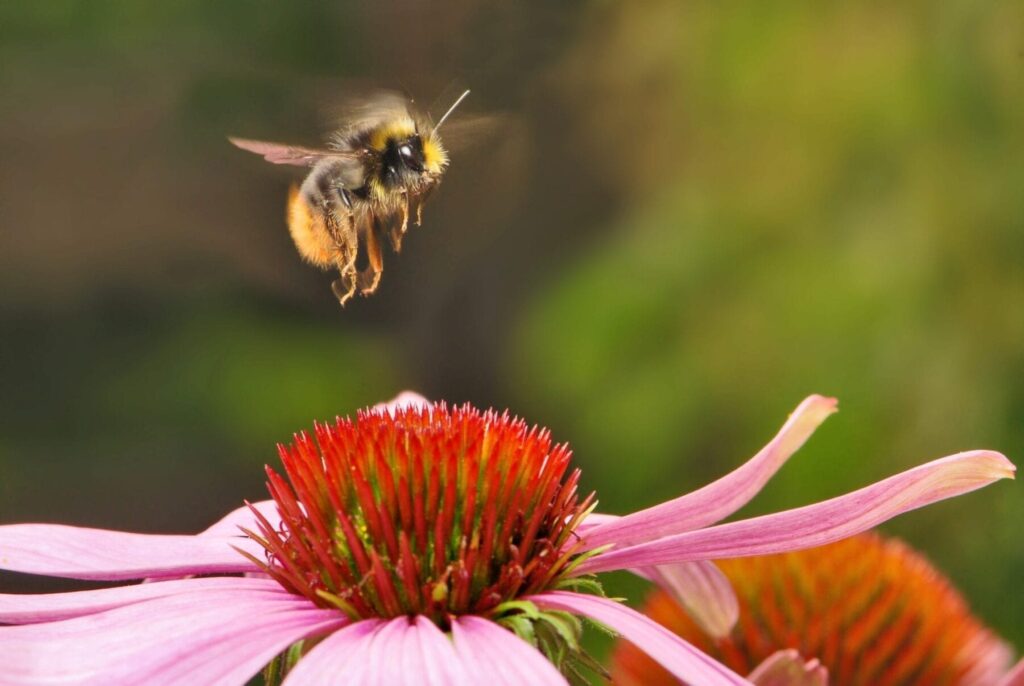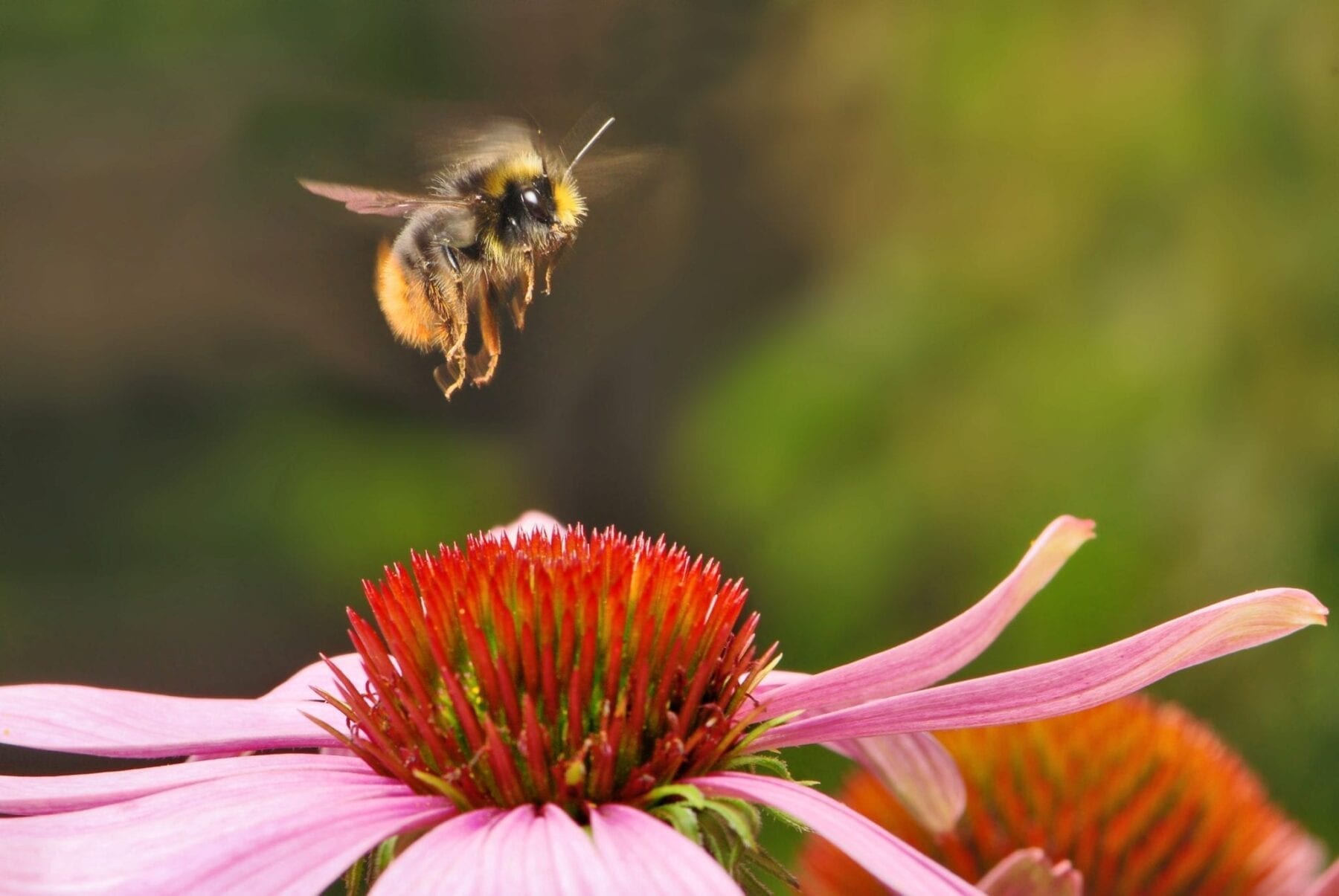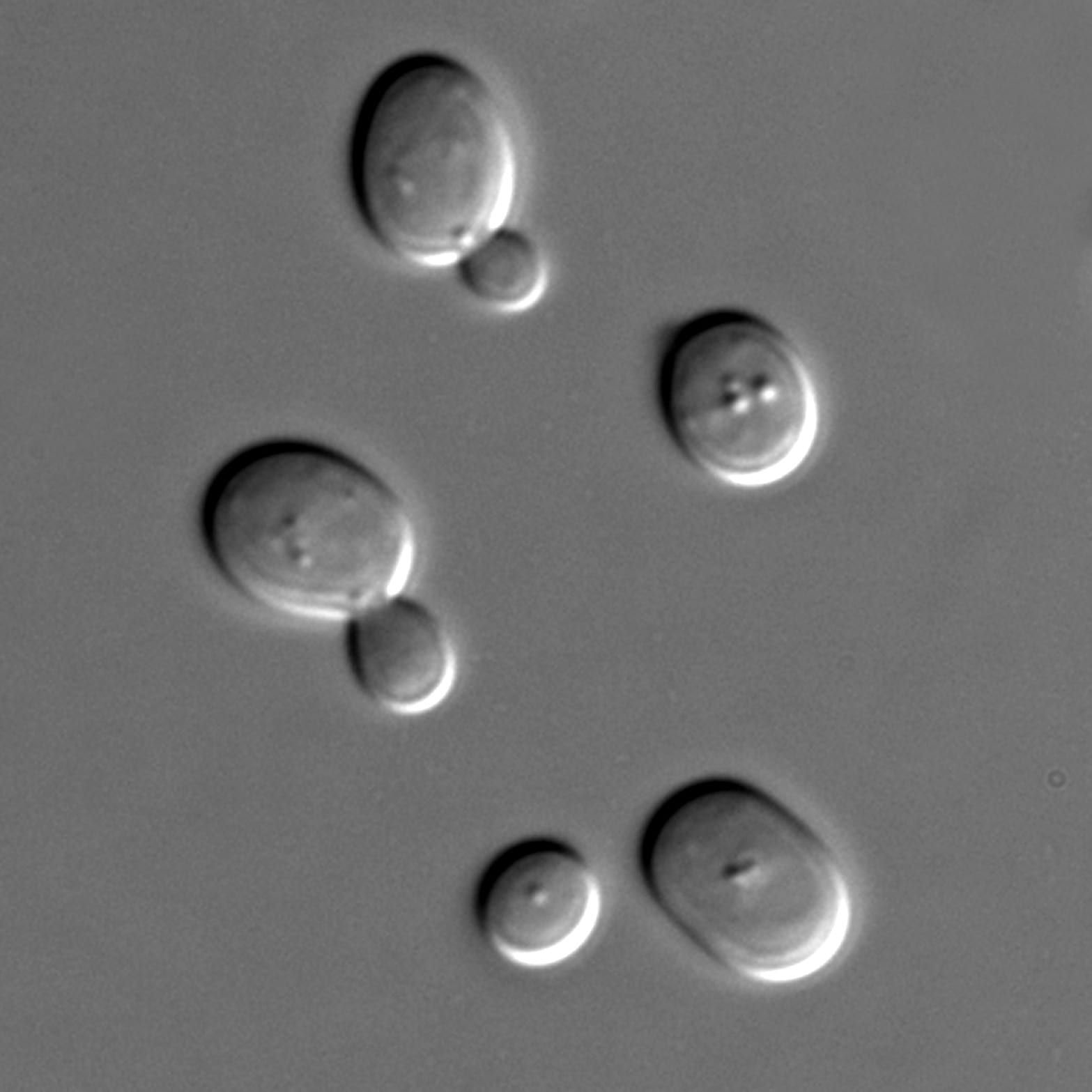
If you’re already out pollinating, why not just carry a little extra?
The humble bumblebee might help disrupt the multi-billion dollar synthetic pesticide industry. A new system uses bees to help deliver natural pesticides and beneficial fungi directly to plants—and because bees are so much more precise than the typical sprayers on farms, they can use a tiny fraction of the pesticide and make plants stronger.
“Imagine you have an apple orchard,” says Michael Collinson, president and CEO of Bee Vectoring Technology, the Vancouver-based startup behind the technology. “Because apple trees have a very large canopy, even though you may spray it and use a special type of spray that doesn’t go everywhere, you still won’t touch every bloom. Whereas the bees deliver product every single day, to every single bloom.”
The new system, originally developed by researchers at the University of Guelph, uses a tray filled with a patented mix of natural, beneficial microbes. The tray goes in a beehive that farmers already have. When bees head out to pollinate crops—their main job—they walk through the powder on the way, and end up delivering tiny helpful spores to flowers as they make their rounds.
Because the bumblebees deliver the powder directly to plants, they also help avoid runoff, a common problem with traditional pesticides. Typically, pesticide is mixed with hundreds of gallons of water and then sprayed everywhere. “99% of that is going to end up in the wrong place,” he says. “One percent ends up where it’s supposed to be, but 99% ends up in the water, or on the ground, or other non-targeted area.”
Normally, farmers can only spray once or twice while apple trees are in bloom, and because sets of trees bloom at different times, it’s easy to miss about half of the orchard. The bees can deliver their organic pesticide continuously, so fruit ends up stronger and more likely to make it to make it to the grocery store.
The special mix of powders also includes beneficial fungi that helps eliminate common diseases like botrytis, which causes mold. “When you go and buy strawberries and you put them in your fridge and they go gray and fuzzy, that’s botrytis,” says Collinson. “If you use our product from the beginning, you control that disease, and therefore you stop the fruit from actually starting to decay a lot sooner. In some cases we can make 10 to 12 days extra shelf life.”
The company has done years of testing to make sure the process is safe for bees.
Read more: Bumblebees Have A New Job: Delivering Organic Pesticides
The Latest on: Bee pesticide delivery system
[google_news title=”” keyword=”bee pesticide delivery system” num_posts=”10″ blurb_length=”0″ show_thumb=”left”]
via Google News
The Latest on: Bee pesticide delivery system
- Modesto Bee to change print days, delivery method as digital transition evolveson May 2, 2024 at 11:00 pm
The Modesto Bee is taking its biggest step yet on its ... alongside your regular mail delivery. The Sunday newspaper will arrive on Saturday because of the U.S. Postal Service’s delivery schedule.
- St. Joseph officially becomes a Bee Cityon April 23, 2024 at 9:52 pm
(WSBT) — St. Joseph is now officially a Bee City! This means the city will ... The city will increase planting and nesting sites, cut back on pesticide use, and educate the community on how ...
- Neonicotinoids & Honey Beeson April 20, 2024 at 9:32 pm
The National Academy of Sciences has underscored that there are multiple threats to bees, including parasites, pathogens, pesticide exposure, habitat loss, and others, the varroa mite being perhaps ...
- Amidst Policy Deliberations, Scientist Sounds Alarm on Bee Die-Offs Linked to Neonicotinoid Pesticideson March 22, 2024 at 10:48 am
After a significant number of bee colony deaths linked to neonicotinoid pesticides, scientists like Judy Wu-Smart are rethinking their traditional roles and stepping into the fray of advocacy ...
- With bees swarming earlier this year, here's what you should knowon April 30, 2023 at 10:01 pm
The entire hive, including honeycomb, honey, pollen and the bees themselves, must be removed, or another swarm can move in.” Study: Mites, pesticides, weather threaten bees A study led by Penn ...
- Europe is misleading the world; pesticides are not killing beeson February 8, 2023 at 1:30 pm
For, in 2013, it banned one of the world's newest and safest group of pesticides, neonicotinoids, to save bees from the 'decline in population' that it is still reporting as ongoing across all its ...
- Emergency pesticide authorisation for 2023 sugar beeton January 24, 2023 at 2:51 am
A virus threat to sugar beet crops has sparked an emergency authorisation for farmers to use a controversial pesticide - which was banned over fears it could be killing bees. For the third year ...
- CloudBees CEO: Making Honey In The Software Delivery Hiveon August 10, 2022 at 10:53 am
The shape of modern software delivery in the age of web and cloud is of course very different. We now talk about the Continuous Deployment & Continuous Integration (CI/CD) of software that may ...
- Non-Target Insects and Beneficial Specieson April 1, 2022 at 3:13 am
Declining bee populations diminish pollination services, damaging plant and agricultural biodiversity. One of the causes of this decline is the use of pesticides ... but only in low-intensity ...
- Seeds That Poisonon April 1, 2022 at 3:13 am
Pesticides in the neonicotinoid (neonic) chemical class have been singled out as major suspects due to their widespread use as seed coatings, high toxicity to bees, “systemic” nature --neonic ...
via Bing News










